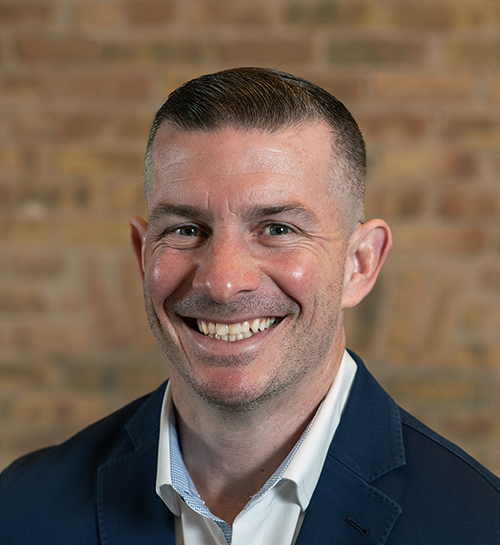Faces of the Foundation: Eric

Every vibrant organization needs a visionary leader. At EFGC, we are fortunate to have such vision and dedication in Eric Weber. After serving on the EFGC Board of Directors since 2020, Eric was appointed Chairman of the Board in July 2025, and he has dived into the role with gusto. As the founder and principal of Cubed Real Estate, Eric brings a wealth of experience and commitment to our mission. His passion for supporting individuals affected by epilepsy is deeply personal, stemming from many years of living with the condition himself.
Here’s Eric in a recent video talking about his personal experiences and the importance of EFGC:

We also sat down with Eric to discuss his involvement with EFGC:
What brought you to EFGC?
I was diagnosed with epilepsy when I was 18 and I’m now 46. I have a strong family unit that provides me with the overwhelming support I need in coping with the condition. As I matured and connected with more and more people (in my everyday life) that also have epilepsy, I have realized how truly lucky I am to have such a supportive family unit. What I have also realized is that so many people dealing with the condition are not as fortunate. A feeling, almost a sense of obligation, grew in me as I was approaching my 40th birthday. I had some success professionally and that success afforded me flexibility with my work schedule and opened up some time. I wanted to use that time and flexibility to give back to the epilepsy community. In 2019 I reached out to the Foundation’s Associate Board to ask how / if I could help in their efforts. They introduced me to EFGC’s Board of Directors where I interviewed with the existing Executive Committee and the former CEO of the Foundation. They brought me onto the Board in 2020. Candidly, I never thought I would end up in the chairman seat. I just wanted to give my time to help families in need. I have written checks to various foundations over the years, but I had never contributed meaningful time to any cause. I guess you could say I was at a perfect intersection in life when I found EFGC and it has been, and will continue to be, life changing.
How has the mission of EFGC touched your life?
In addition to being a very misunderstood condition, epilepsy can be debilitating both physically and mentally. When I initially encountered EFGC in 2020, I thought it was only about helping people with epilepsy. What I realized very quickly was that it was as much about helping people with epilepsy as it is about helping people who help people with epilepsy. This condition introduces almost insurmountable challenges for some families. Parents, siblings, grandparents, extended family can all become full time caretakers. Like the people affected by the condition, these caretakers need outlets too. The programs and services offered by EFGC address the needs of the “patient” and their caretakers. I didn’t realize how much work there is to do to reach the entire Chicagoland epilepsy community. EFGC treats the challenge as an opportunity. Their mission is almost presumptuous….and I want to be part of that. Nothing is more motivating to me than being told something might not be achievable.
What do you think is most impactful about the work of EFGC and how do you see our mission growing in the coming years?
I think the most impactful work EFGC does is give people living with epilepsy a sense of community. I know that sounds broad, and perhaps generic, in nature so let me elaborate…having a misunderstood condition, especially one that affects that brain and can make you lose consciousness and, in the most extreme cases, seize uncontrollably, scares people. Right or wrong, when people have a misunderstood condition, they’re deemed different. Being different can make you feel alone and outcast. EFGC is working to change that narrative. Their approach is a bottoms-up approach. Educate the general public about epilepsy so it’s not misunderstood; create a sense of community for those with and affected by the condition; support caretakers so they can support their loved ones and, eventually, remove the stigma around the condition so people affected by it don’t feel different. Our goal in the coming years is to reach a broader population in the Chicagoland area than is currently served. Combine that with the aforementioned initiatives (particularly education), I think we have a real chance, at least locally, to minimize the stigma associated with this condition and offer people a renewed quality of life.
What is the most important thing you wish people understood about epilepsy?
There is a wide range of people affected with varying degrees of severity. The fact that 1 in 26 people in the country have this condition is massively overlooked. Multiply that by the number of family members that are affected by the 1 in 26 and you reach a population of multiple of millions of people dealing with this condition on a daily basis. Seizures themselves are terrifying, but the daily anxiety of not knowing when one will strike can feel paralyzing. I hope people understand that treating epilepsy goes beyond prevention of seizures themselves and into a realm of mental health that requires patience and empathy to truly understand.
